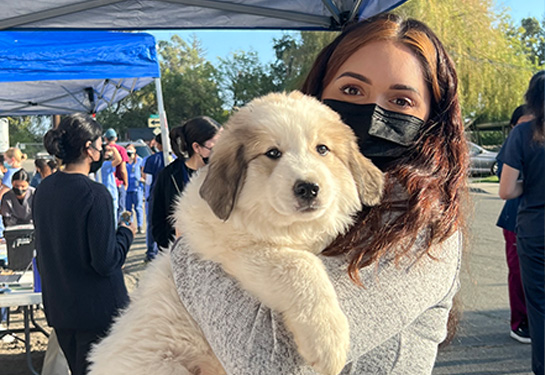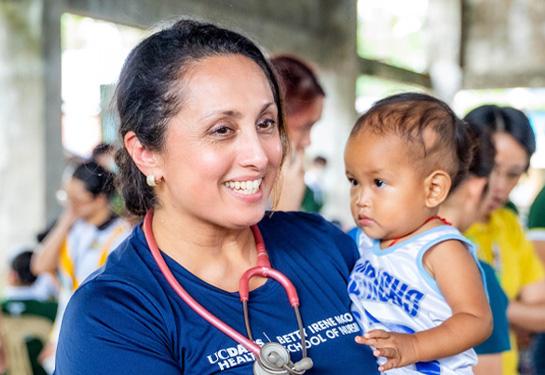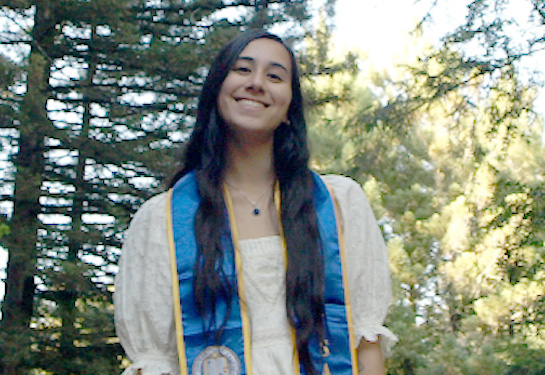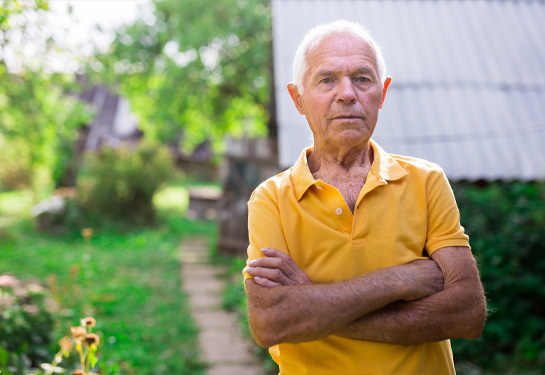‘One Health’ team cares for people and their pets
Nursing and veterinary students serve residents who lack access to care
The human-animal bond is powerful. Pets can reduce loneliness and boost your mood. Interacting with animals can decrease stress hormones and blood pressure.
But research shows that humans may delay or skip routine health care if their pets cannot be accommodated.
Thanks to a partnership between the UC Davis School of Veterinary Medicine and the Betty Irene Moore School of Nursing at UC Davis, humans and their pets receive care side-by-side.
Since the spring of 2022, students in the Master’s Entry Program in Nursing have partnered with veterinary students at the Knights Landing One Health Clinic. Once a month, veterinary students set up a pop-up clinic with a reception area, examination stations, pharmacy, laboratory and education area.
“The focus of the experience is on building rapport and engaging people in general discussions about their health. Nursing students are paired with a veterinary team and engage with pet owners as the veterinary students provide care to the animals,” explained Eileen Partridge, the School of Nursing assistant professor who oversaw the collaboration this year.
Hands-on learning
Knight’s Landing is a rural area 21 miles north of Davis, Calif. It is what is called a health care desert because its residents lack access to care, like veterinary or health clinics or a hospital. In 2012, the UC Davis School of Medicine opened its eighth student-run clinic to serve residents there. They've been providing the care to both pets and humans there since 2013.
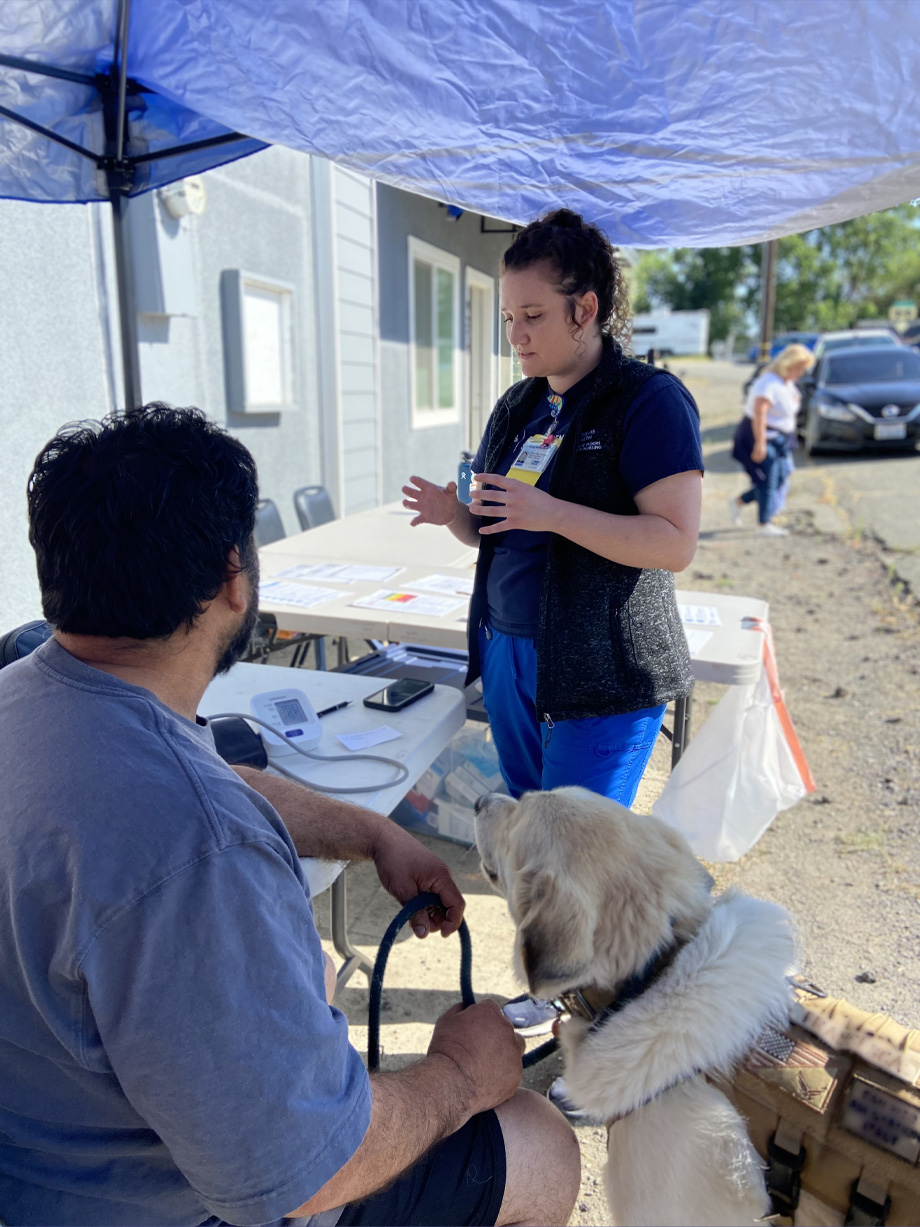
“Having the nursing students and faculty become part of our One Health clinic has been an amazing addition. Working as a team, we can listen and respond to the whole family. It allows all the health care providers to make better connections with our clients and patients. Not only does this One Health approach help those receiving care, studies have shown it also benefits the ones providing care,” said Kristin Jankowski, veterinary adviser for the clinic.
While veterinary students and faculty veterinarians work as a team to tend to the furry family members, nursing students, under the guidance of nursing faculty, provide preventive health care screenings and health education for human family members. They offer blood pressure screenings and blood glucose checks and education on topics such as general blood pressure management, healthy diet and smoking cessation.
Second-year nursing student Erica Stansfield said everyone she asked was willing to at least have their blood pressure taken. That was just the beginning of what she learned.
“Even with inpatient care, a lot of people have outside commitments that include children and pets. I now have a better understanding of what they might be going through and their concerns,” Stansfield said.
Roughly 25 nursing students have volunteered at the clinic in the past 16 months. One of the residents told Stansfield he comes to the clinic each month with his service dog to get routine care for both of them.
Beyond Knight’s Landing
The experience improves patients’ lives and enhances students’ education. At the School of Nursing, faculty incorporate the animal dynamic into coursework. In August, nursing students participated in a mock emergency drill. The experience showed them the importance of public health nursing to support disaster response. And because some pet owners refuse to evacuate their homes during natural disasters when they cannot bring their pets with them, furry stand-ins simulated the role of pets.
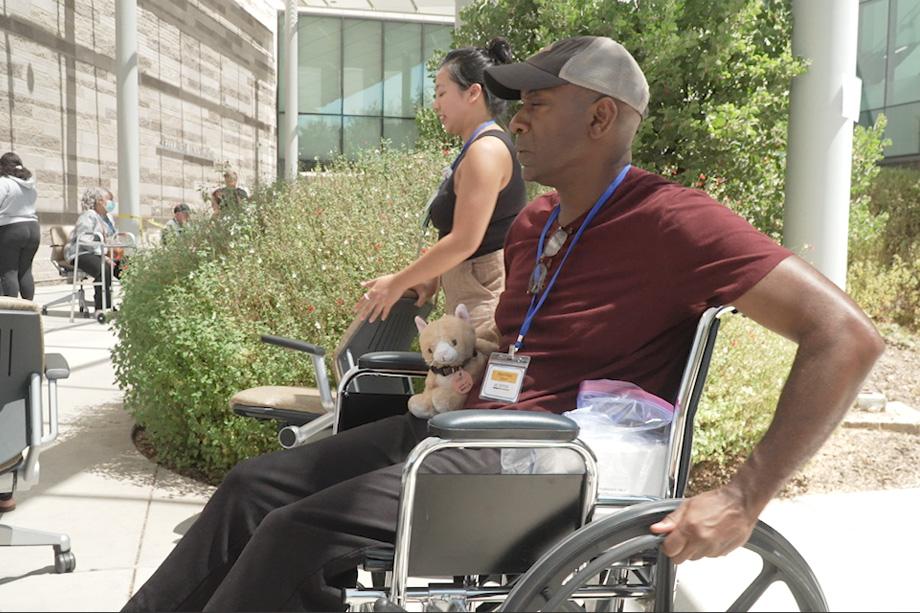
“We need to consider pets in all transitions of care — when admitting someone to the hospital or transitioning them back to their home and the community,” explained Jennifer Edwards, course instructor and the school’s simulation director. “These experiences benefit our students. They can provide health education and support in a community and see the interprofessional interplay between human medicine and animal medicine.”
Edwards, Jankowski and Partridge presented findings from the collaboration at the Access to Veterinary Care Virtual Conference last week. “From Classroom to Clinic and Beyond - One Health Collaborations” discusses this novel blend of community collaboration, health services and education. Meanwhile, faculty are looking at what other types of care may be needed in the future.
“What I find most important is that students can see the positive impact that they already have in fulfilling the mission of the Betty Irene Moore School of Nursing and its attributes of community involvement, collaboration and innovative solutions,” added Partridge. “And it doesn’t hurt to get to hug a puppy during the workday.”
Learn more about UC Davis’ efforts to connect health care to people and pets in this Unfold podcast.

